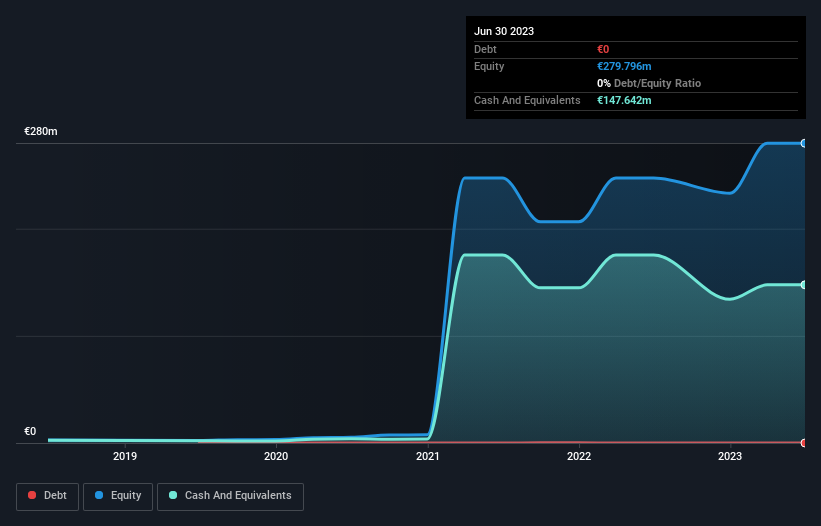Will Vulcan Energy Resources (ASX:VUL) Spend Its Cash Wisely?
Even when a business is losing money, it's possible for shareholders to make money if they buy a good business at the right price. For example, although Amazon.com made losses for many years after listing, if you had bought and held the shares since 1999, you would have made a fortune. Nonetheless, only a fool would ignore the risk that a loss making company burns through its cash too quickly.
So should Vulcan Energy Resources (ASX:VUL) shareholders be worried about its cash burn? For the purposes of this article, cash burn is the annual rate at which an unprofitable company spends cash to fund its growth; its negative free cash flow. First, we'll determine its cash runway by comparing its cash burn with its cash reserves.
View our latest analysis for Vulcan Energy Resources
Does Vulcan Energy Resources Have A Long Cash Runway?
You can calculate a company's cash runway by dividing the amount of cash it has by the rate at which it is spending that cash. In June 2023, Vulcan Energy Resources had €148m in cash, and was debt-free. Looking at the last year, the company burnt through €105m. That means it had a cash runway of around 17 months as of June 2023. While that cash runway isn't too concerning, sensible holders would be peering into the distance, and considering what happens if the company runs out of cash. You can see how its cash balance has changed over time in the image below.
How Well Is Vulcan Energy Resources Growing?
Notably, Vulcan Energy Resources actually ramped up its cash burn very hard and fast in the last year, by 142%, signifying heavy investment in the business. Of course, the truly verdant revenue growth of 165% in that time may well justify the growth spend. Considering the factors above, the company doesn’t fare badly when it comes to assessing how it is changing over time. Clearly, however, the crucial factor is whether the company will grow its business going forward. So you might want to take a peek at how much the company is expected to grow in the next few years.
How Hard Would It Be For Vulcan Energy Resources To Raise More Cash For Growth?
Even though it seems like Vulcan Energy Resources is developing its business nicely, we still like to consider how easily it could raise more money to accelerate growth. Companies can raise capital through either debt or equity. Commonly, a business will sell new shares in itself to raise cash and drive growth. By looking at a company's cash burn relative to its market capitalisation, we gain insight on how much shareholders would be diluted if the company needed to raise enough cash to cover another year's cash burn.
Vulcan Energy Resources has a market capitalisation of €222m and burnt through €105m last year, which is 48% of the company's market value. That's high expenditure relative to the value of the entire company, so if it does have to issue shares to fund more growth, that could end up really hurting shareholders returns (through significant dilution).
So, Should We Worry About Vulcan Energy Resources' Cash Burn?
Even though its increasing cash burn makes us a little nervous, we are compelled to mention that we thought Vulcan Energy Resources' revenue growth was relatively promising. Summing up, we think the Vulcan Energy Resources' cash burn is a risk, based on the factors we mentioned in this article. Separately, we looked at different risks affecting the company and spotted 4 warning signs for Vulcan Energy Resources (of which 2 are a bit unpleasant!) you should know about.
Of course Vulcan Energy Resources may not be the best stock to buy. So you may wish to see this free collection of companies boasting high return on equity, or this list of stocks that insiders are buying.
Have feedback on this article? Concerned about the content? Get in touch with us directly. Alternatively, email editorial-team (at) simplywallst.com.
This article by Simply Wall St is general in nature. We provide commentary based on historical data and analyst forecasts only using an unbiased methodology and our articles are not intended to be financial advice. It does not constitute a recommendation to buy or sell any stock, and does not take account of your objectives, or your financial situation. We aim to bring you long-term focused analysis driven by fundamental data. Note that our analysis may not factor in the latest price-sensitive company announcements or qualitative material. Simply Wall St has no position in any stocks mentioned.

